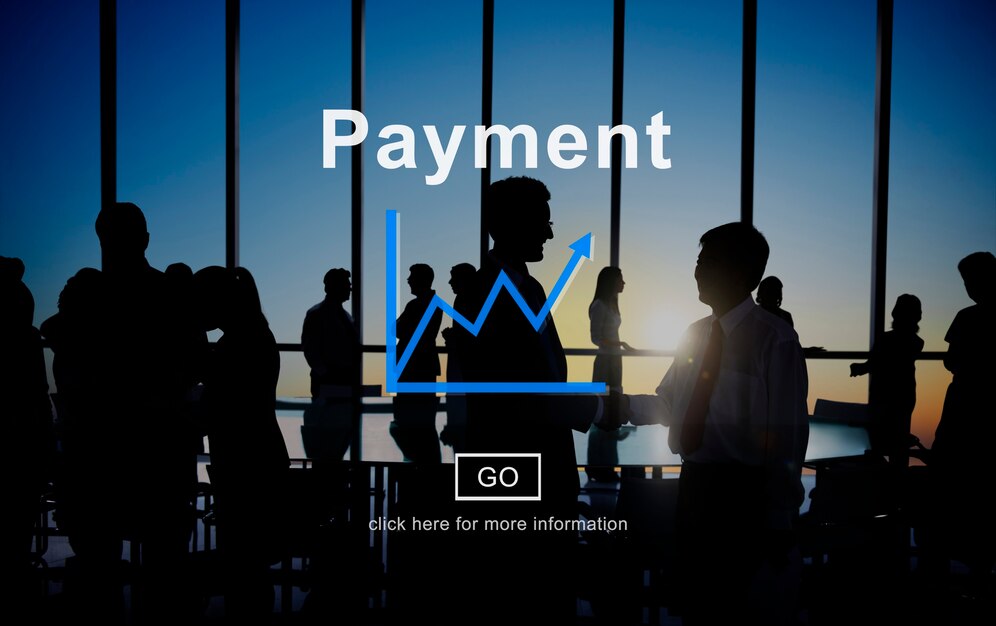The Rise Of Custom Payment Systems In Fintech
6 Mins Read
1 comment
Published on: 09 February 2024
Last Updated on: 10 February 2024

toc impalement
In the ever-evolving world of fintech, how can businesses stay ahead in the fiercely competitive landscape of digital transactions?
Custom payment systems are emerging as a game-changer, offering tailored solutions that cater specifically to the unique needs of each business.
This article delves into the rise of custom payment software in fintech, shedding light on its significance and the transformative impact it has on the industry.
From the evolution of payment systems to the latest trends shaping their future, get ready to explore how customizing your payment solution can be the strategic advantage your business needs to thrive.
The Evolution Of Payment Systems In Fintech
The financial technology (fintech) sector has undergone a remarkable transformation over the past few decades, reshaping the way we handle financial transactions.
To appreciate the rise of custom payment systems in fintech, it’s essential to understand the evolution of payment systems in this dynamic industry.
Historical Perspective: Fintech’s journey from traditional banking to modern innovation is a testament to its adaptability. It all began with basic online banking services, but with time, fintech companies started exploring new horizons. The introduction of digital wallets, such as PayPal, marked a significant leap forward.
Key Milestones: Several milestones have paved the way for custom payment systems. The launch of mobile payment solutions like Apple Pay and Google Wallet revolutionized the way we make everyday transactions. Additionally, peer-to-peer payment platforms like Venmo and Square Cash gained immense popularity, simplifying person-to-person payments.
Cryptocurrency Revolution: The emergence of cryptocurrencies like Bitcoin challenged the traditional notion of currency and payment systems. Blockchain technology, the backbone of cryptocurrencies, offered unparalleled security and transparency, setting the stage for further innovation in custom payment solutions.
The Role of Big Tech: Tech giants like Amazon, Apple, and Google ventured into fintech, introducing their payment ecosystems. These companies leveraged their massive user bases to promote digital payment adoption, further shaping the fintech landscape.
The evolution of payment systems in fintech is a testament to the industry’s adaptability and innovation.
From basic online banking to the cryptocurrency revolution, each step has contributed to the rise of custom payment systems.
The fintech industry is witnessing a surge in demand for tailored payment solutions, with businesses increasingly turning to experts in custom payment solution development to create payment systems that perfectly fit their unique requirements.
The Need For Customization In Payment Solutions

In the rapidly evolving fintech ecosystem, one size no longer fits all when it comes to payment solutions.
The need for customization in payment solutions has become increasingly apparent, driven by the diverse requirements of businesses and industries.
Challenges With One-Size-Fits-All
Traditional, one-size-fits-all payment solutions often fall short in meeting the unique demands of businesses.
These generic systems may lack the flexibility required for specific payment workflows, leading to inefficiencies and missed opportunities.
Customization addresses these shortcomings by tailoring payment processes to the exact needs of an organization.
Specific Business And Industry Demands
Different businesses and industries have distinct payment requirements.
For example, an e-commerce platform may require seamless integration with multiple payment gateways and fraud prevention mechanisms, while a subscription-based service may need a recurring billing system.
Custom payment solutions empower businesses to address these specific demands effectively.
Enhanced User Experience
Customization extends beyond back-end processes; it also enhances the user experience.
Customers and clients are more likely to engage with a business that offers a payment system that aligns with their preferences and expectations.
This leads to higher customer satisfaction and loyalty.
Competitive Edge
In a crowded fintech marketplace, having a unique selling proposition is crucial.
Custom payment solutions provide a competitive edge by allowing businesses to differentiate themselves from competitors.
They can offer innovative payment options, such as loyalty programs or rewards, which can attract and retain customers.
Adaptability To Growth
As businesses grow and evolve, their payment needs change.
Custom payment solutions are scalable and adaptable, ensuring that they can accommodate increased transaction volumes, new features, and evolving compliance requirements.
Benefits Of Custom Payment Software For Fintech

The adoption of custom payment software in the fintech industry brings a multitude of benefits that can significantly impact businesses and their customers.
Here, we explore the advantages of leveraging custom payment solutions:
Enhanced User Experience And Customer Satisfaction
Custom payment software allows businesses to design payment processes that align seamlessly with their brand and customer preferences.
This results in a more user-friendly and intuitive payment experience.
Customers appreciate the convenience of a tailored payment system, leading to increased satisfaction and loyalty.
Improved Security And Fraud Prevention
Custom payment solutions can integrate advanced security features, including multi-factor authentication, encryption, and real-time fraud detection.
These measures bolster the security of financial transactions, instilling trust in customers and protecting businesses from potential financial losses due to fraud.
Scalability And Flexibility
Generic payment systems may struggle to adapt to a business’s evolving needs.
Custom payment software is designed with scalability and flexibility in mind, ensuring that it can grow alongside the business.
Whether it’s handling increased transaction volumes or integrating new features, custom solutions are up to the task.
Cost Efficiency
While there may be an initial investment in developing custom payment software, the long-term cost-efficiency is undeniable.
Custom solutions eliminate the need for expensive third-party intermediaries, reducing transaction fees and operational costs over time.
Competitive Advantage
In the competitive fintech landscape, offering a unique and tailored payment experience can set a business apart from competitors.
Custom payment solutions enable companies to innovate, introducing features like loyalty programs, installment payments, or subscription billing that can attract and retain customers.
Data Insights And Analytics
Custom payment software often includes advanced analytics tools.
Businesses can leverage these insights to gain a deeper understanding of customer behavior, payment trends, and revenue streams.
Informed decision-making based on data leads to more effective strategies.
Key Features Of Custom Payment Systems

Custom payment systems are designed to address the unique needs of businesses in the fintech sector.
They come equipped with key features that set them apart from generic payment solutions.
Here are some of the critical features of custom payment systems:
Integration Capabilities
Custom payment systems are designed to seamlessly integrate with a wide range of existing software and systems used by businesses.
Whether it’s accounting software, CRM systems, or e-commerce platforms, these systems can be tailored to work together efficiently.
Compliance And Regulatory Considerations
Fintech businesses must adhere to strict regulatory requirements.
Custom payment solutions can be designed to ensure compliance with regional and industry-specific regulations.
This includes features like anti-money laundering (AML) checks and Know Your Customer (KYC) verification.
Advanced Analytics And Reporting Tools
Custom payment systems often include robust analytics and reporting features.
Businesses can access real-time data on transaction volumes, revenue, and customer behavior.
These insights enable data-driven decision-making and strategy development.
Payment Gateways And Methods
Custom solutions can offer businesses the flexibility to choose from a variety of payment gateways and methods.
Whether it’s credit cards, digital wallets, cryptocurrencies, or bank transfers, businesses can tailor their payment options to their target audience.
Mobile-Friendly Interfaces
As mobile payments continue to rise in popularity, custom payment systems can be optimized for mobile devices.
This ensures a smooth and user-friendly experience for customers making payments via smartphones and tablets.
Security Measures
Custom payment systems prioritize security. They can incorporate advanced security measures such as tokenization, end-to-end encryption, and fraud detection algorithms.
This safeguards sensitive customer data and minimizes the risk of data breaches.
Customization Of User Interface
Businesses can design the user interface of their custom payment system to match their branding and user experience goals.
A visually appealing and intuitive interface can enhance customer trust and satisfaction.
Custom payment systems are not one-size-fits-all; they are adaptable and can be tailored to the specific needs and goals of each business.
These features empower fintech companies to provide a superior payment experience while ensuring compliance, security, and efficiency.
Read Also:


















1 comment
Alda Ritchie February 13, 2024 at 4:06 pm
Thank you for the auspicious writeup It in fact was a amusement account it Look advanced to far added agreeable from you However how can we communicate